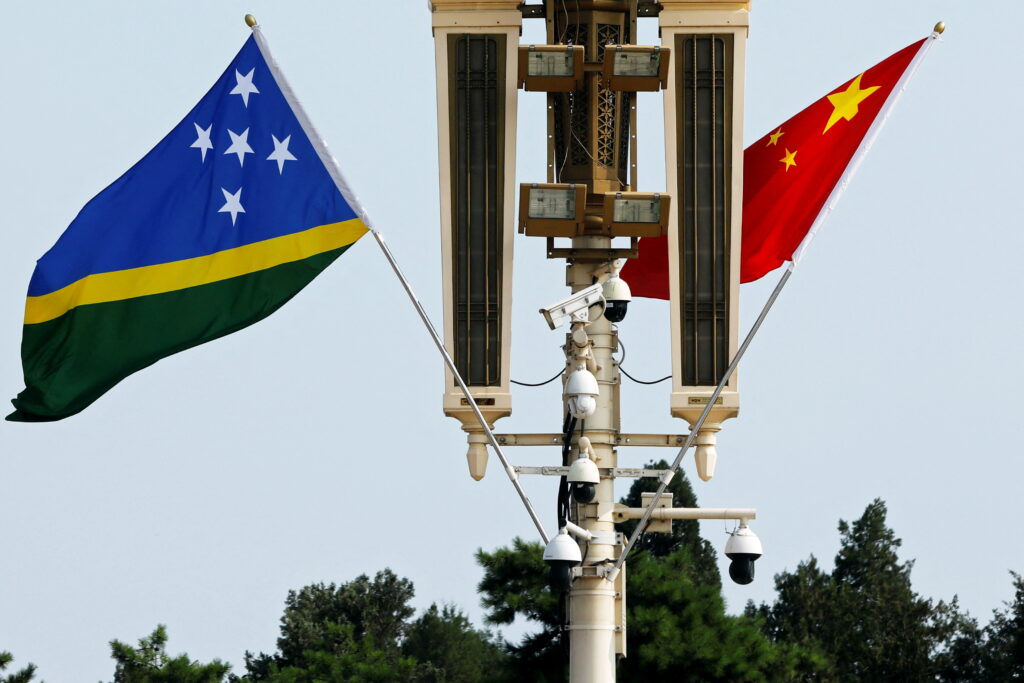Following Papua New Guinea’s (PNG) devastating riots in early January 2024, Foreign Minister Justin Tkachenko told journalists that in September 2023 China had offered to provide training, equipment and surveillance technology to the PNG police force. Further, the two countries are in the early stages of negotiations over potential security cooperation. This revelation added to concerns in Australia around geopolitical competition in the Pacific region, though Tkachenko later said PNG will not ‘jeopardise or compromise relations’ with traditional security partners.
Should such a deal materialise, this would be the latest in China’s expanding engagement with Pacific police forces — the main security agency in most Pacific countries.
Since 2013, China’s Ministry of Public Security has sent two police officers at a time from the Ministry and city-level bureaus on attachment to the Fiji Police Force for 3–6 months. In September 2021, China sent its first police liaison officer, based at the Chinese embassy, to Fiji. China also supplied the Fiji Police Force with vehicles, communications, surveillance and anti-riot gear prior to the 2014 national elections and further equipment in 2021, including drones.
Solomon Islands is a new focus of China’s policing cooperation after the two countries established diplomatic relations in 2019. After riots in Solomon Islands’ capital, Honiara, in November 2021, China stepped up assistance to the Solomon Islands police with training and equipment.
The leaking of a secretive draft security agreement between the two countries in March 2022 caused alarm in Western capitals. It revealed provisions for the potential deployment of Chinese police and military personnel to Solomon Islands. China sent its first police advisory team to Solomon Islands in February 2022. It has also sent police advisors to Vanuatu and Kiribati since 2023.
China promotes policing cooperation with the Pacific for both practical and strategic purposes. There is a practical need to protect the Chinese diaspora and their property, particularly during social unrest, such as Tonga’s 2006 riots, Solomon Islands’ 2006 and 2021 riots and, most recently, in PNG. In a recent survey conducted in several Pacific countries, many respondents stated that similar riots are likely to recur. The leaked security agreement between China and Solomon Islands identifies the protection of China’s citizens and investments as a reason to allow visits from Chinese ships.
At the strategic level, Beijing views policing cooperation as an important new area where China can compete for influence with traditional powers and build trust for deeper security cooperation with Pacific states. Yet during his regional tour in May–June 2022, China’s Foreign Minister Wang Yi failed to win support from Pacific leaders for two broad agreements that included proposals for policing and security cooperation, much to the relief of the Pacific’s traditional partners.
Pacific governments have long relied on traditional partners, such as Australia and New Zealand, for policing cooperation. China’s entry into this space provides another source of external assistance for small and often under-resourced Pacific police forces. More broadly, China’s growing engagement at a time of heightened geopolitical competition provides Pacific governments with additional leverage in their dealings with both traditional and non-traditional partners.
Observers have raised concerns about differences between China’s authoritarian style of policing and the more democratic policing espoused by Western countries like Australia. Human rights groups protested the lack of due process when Chinese police, working with local officials, arrested 77 Chinese nationals in Fiji in 2017 and deported them to China. In early 2023, newly elected Fijian Prime Minister Sitiveni Rabuka said his government would end the existing police exchange agreement with China. He softened his tone later, saying the agreement would be reviewed prior to any decision being made.
International policing assistance will continue to be important for Pacific police forces. This is especially so given fiscal and other constraints on support from their own governments and the increasingly challenging environments in which they operate. While such assistance can make positive contributions to police development, it can also be counterproductive when international actors espouse different policing philosophies and practices.
Given China is likely to deepen its policing cooperation with Pacific states, it is important these states ensure such assistance is consistent with democratic policing approaches embraced throughout the region. One possibility would be for Pacific states to confine China’s policing assistance to funding, equipment or critical infrastructure. Another would be for regional authorities — such as the Pacific Islands Forum or the Pacific Islands Chiefs of Police — to devise regional standards that international policing partners would have to satisfy.
Sinclair Dinnen is Professor at the Department of Pacific Affairs at The Australian National University.
Denghua Zhang is Research Fellow at the Department of Pacific Affairs at The Australian National University.

